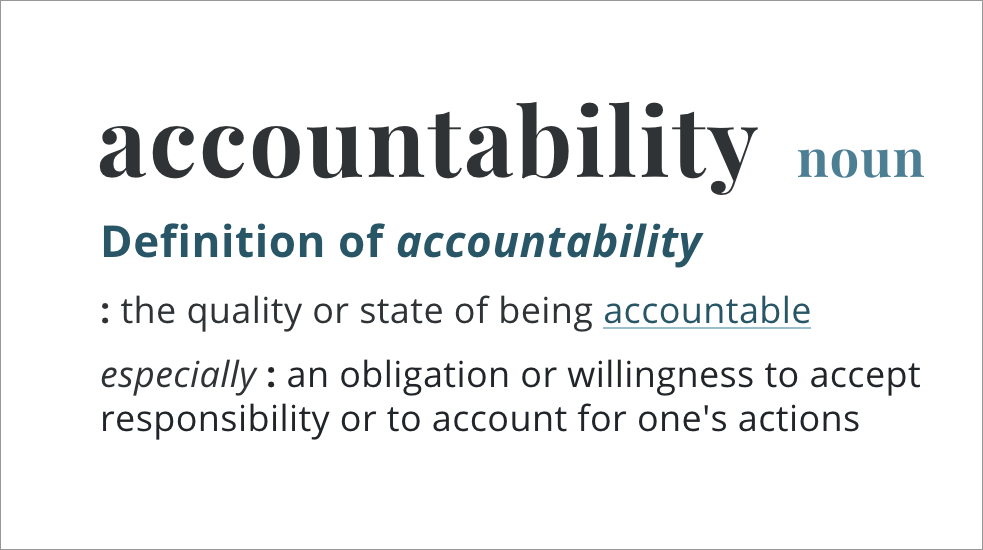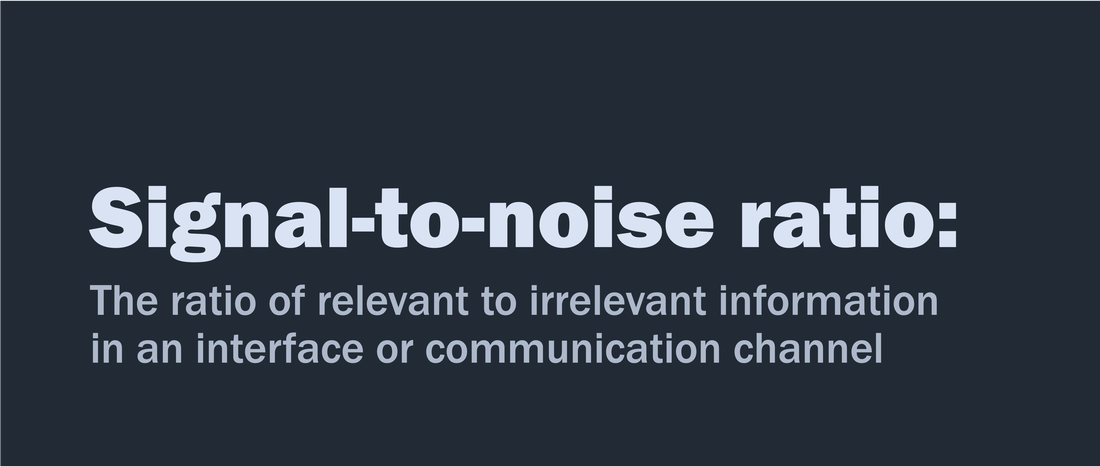|
Several times in the past six weeks, I have been asked to share some thoughts on artificial intelligence and board work; specifically, the impact of emerging AI capabilities on corporate governance and, even, the need for board of directors. The rapid emergence and now widespread awareness of ChatGPT has been a catalyst for many of these enquiries, it seems. I have been fascinated by the unfolding situation, not only because of a longstanding interest (I studied artificial intelligence at university nearly four decades ago), but also the speed by which awareness has spread, and expectations climbed to such stratospheric heights, is unprecedented. Claims have been made that computer-based tools will soon supplant the need for human directors and, with it, board meetings. Some, especially those with jaundiced perceptions of boards, their work and any value they add, have confided this may be a good thing. Others have reserved judgement—for now at least—saying the situation is far too fluid and complex to make anything approaching an informed or reliable decision, much less widespread change. That so many people are questioning 'conventional' corporate governance practices feels a little bit like ground hog day. While I do not claim any particular expertise in the topic of artificial intelligence, I have read widely, asked many questions (of myself and others) and pondered both the purported capability and potential impact (of artificial intelligence) on board work. The departure points for my enquiry has been, as always, definitional. What is artificial intelligence, and what conception of governance does one hold? My responses to these questions are as follows:
So, the proposition to be considered is, "Can a computer replace a social group charged with steering and guidance an organisation in a complex and dynamic environment?" Those people wondering whether AI might be a viable mechanism to support or even replace boards have much to ponder. What is the role of a board of directors in companies? How might the operating context beyond the organisation be assessed? Where does accountability for statutory compliance and overall performance lie? And, to whom should the Chief Executive and management of the company report? If one holds the view that the board is the ultimate decision-making authority within a company (a responsibility delegated by shareholders), and that this (decision-making despite uncertainty and ambiguity) is 'core business', the board has a vital role to play. My early training in computers and technology taught me that computers respond to instruction; they cannot 'think' autonomously or handle ambiguity, and they lack feelings and intuition. They do what they are 'told'; if the 'telling' is poor, the result is likely to be poor: the phrase "garbage in, garbage out" springs to mind. But that was then. Computing power is far greater today than it was even five years ago, much less forty. Has the evolutionary development of computing capability reached the point whereby computers can displace humans? For a large and growing list of tasks and activities, yes, of course. The analysis of data is a relevant case in point. But for many other enquiries, the answers remains a resounding no. How might a computer make sense of the unspoken feelings, intuition and biases of staff, customers and board directors, and reach a credible decision? For this, a much higher order of capability is necessary. And, with that, I stand with those reserving judgement. What of the future? AI may become a viable mechanism to expedite board decision-making, of course. But the likelihood of directors being supplanted any time soon is low (those failing in their duties excepted). For that, artificial general intelligence (AGI) is likely to be necessary, and some moral and ethical questions will need to be resolved as well. If that is achieved, I may take a stronger position. Regardless of whether this muse is sound or not, directors, shareholders, regulators and their various advisors need to be alert, because the situation may change quite quickly.
0 Comments
When aiming to achieve something in business, is it better to be good, or effective, or both? Should boards for example pursue good governance, or prioritise effectiveness? And, are these qualifiers mutually exclusive, or can a board claim both? These 'challenge' questions have beset contemporary boards of directors, more so as various stakeholders have sought to impose their expectations and ideological preferences onto corporate values, purpose, strategy and decision making. If these questions are to be considered and answered well, agreement on the meaning of the adjectives is necessary. To wit:
Instinctively, good governance sounds attractive. It satisfies a human condition; of doing the right thing and acting in the best interests of someone else (a particular stakeholder interest, for example). But what if doing the right thing has the effect of compromising the competitive position of the company; the achievement of agreed performance objectives; or, potentially, the viability of the company? And, what might be considered good by one person or group may not be upheld elsewhere. Turning to effectiveness, the threshold is more objective—either the goal is achieved or it is not. But, what if the pursuit of an agreed objective results in environmental or social harm, or some other negative consequence? That is not acceptable either. Given the extremes, some sort of balance is needed, in the same way that every board must ensure conformance requirements are satisfied (compliance, value protection) and performance objectives are achieved (value creation). If this is reasonable, should a different adjective be used, to more adequately describe the value of the board's work? My recommendation: drop goodness and effectiveness, for one (at least) is highly subjective and has become emotively charged (think, what ESG has become), and the other focuses more on the goal without necessarily considering unintended consequences. Ultimately, in extremis, neither is sustainable without the other. Instead, boards should pursue enduring impact. Boards that strive to be effective in role without incurring social or environmental harms are more likely to exert a positive and enduring influence beyond the boardroom (that is, have impact). As a result, they should be well-regarded by shareholders and legitimate stakeholders as well. The Strategic Governance Framework offers insights to boards intent on realising the full potential of the companies they govern.
‘That’ time of the year has arrived once more. For many, the time to put the tools down and relax for a few days is nigh. From the hustle and bustle of public life, families are gathering. Some will celebrate the significance of Christmas, others will celebrate because any opportunity for a party with friends and family is a good one. Amongst it all, some will work on, especially in healthcare, emergency services, process manufacturing, retail and hospitality; we should not forget them for they too have family and friends. I am one amongst many who carve out a little time and space towards the end of December to reflect on the year gone. Often, my mind is drawn towards relationships and experiences. This year is no exception.
Before signing off this last post for the year, a note of heartfelt thanks. Thank you to everyone who has seen fit to consider my ideas, challenge my thinking, and invite me to work alongside them this year. To have been afforded the opportunity to contribute, globally, has been delightful. The calling, to serve and support boards intent on realising organisational performance, remains strong. Consequently, the work will continue in 2023, starting in early January with responses to a long list of enquiries to assess, advise, coach and speak. Now, I have one report to complete, a client event to attend, and a few Christmas errands to run. Then, I shall set the tablet and pencil down, in favour of a book or two, my vegetable garden, a few small jobs around the house, and some quality family time.
Twenty-one years ago this week, I embarked on a journey to pursue a dream: to help directors and boards become value creators, realising the potential of the companies they govern. At the time—four weeks after the terror attack on the World Trade Centre—governance was hardly known as a word, and most boards had a strong compliance orientation. I had no idea whether the dream was realistic, much less attainable. But, at 39 years old, the calling was strong—compelling even. So, I took a deep breath and walked away from a great company and international role, armed solely with a strong belief that I might be able to add some value. I was told that stepping away from financial security and the makings of a stellar international career was crazy. But the decision had been made. I found that people would happily talk about their situation and what they wanted to achieve if they thought you were genuinely interested in them. That insight has provided the foundation for everything that followed—including working with thousands of directors in 45 countries across five continents, serving on boards, delivering hundreds of talks and leading many education sessions. The 2012–2016 period dedicated to complete doctoral research, to try to answer that most difficult question of how boards influence company performance provided a breakthrough that I hope, one day, will be taken up widely: the Strategic Governance Framework. To have met and spent time with doyens of corporate governance, strategy and leadership along the way—including Bob Garratt, Bob Tricker, Charles Handy, James Lockhart, Jenny Darroch, Roger L. Martin, Rita Gunther McGrath, Silke Machold, Stuart Farquhar, Andrew Kakabadse and many more besides—has been inspirational. I am indebted to everyone who has spared a few minutes to answer questions and share insights. Other highlights include sitting with directors in India, Eastern Europe and other places well off the beaten track, to listen; experience their thirst for insight; and receive their gratitude for what little I had to offer. Without exception, everyone I've met and worked with has wanted to find ways to guide and steer the businesses they govern with greater effect. To have been asked to contribute has been a honour. Thank you to every established director, board trustee, and board chair; every aspiring director; every chief executive and leadership team; every MBA student, researcher and associate; everyone who has heard me speak or read my articles (note: all my articles and blog posts remain available today); every regulator and government who sought confidential assistance; and, untold others I've never met. Thank you for considering my submissions and arguments, for believing in me, for encouraging me and for engaging me. Today, 21 years on from stepping out of the boat, the calling remains strong. I remain available to serve for as long as boards and directors call for assistance, and my ability to contribute allows. To that end, and with the passing of the pandemic, I am available once more to travel to meet in person to understand and speak into situations. So, if you have a question or want to discuss a problem, please get in touch. I stand ready to serve.
The passing of the Covid pandemic has been a great relief for many; boards of directors are no exception. Several weeks ago, I visited Sydney, Australia to meet with directors, boards and leaders of membership bodies. The feedback was clear: if companies (and through them, economies and societies) are to prosper, boards need to start thinking strategically again. Last week, more grist to the mill. During a successful visit to Bengaluru, India to lead a Board Immersion Programme for a globally-known FMCG company, the question of how boards can add value was front-of-mind throughout. Today, I'm delighted to announce my first post-Covid visit to the United Kingdom and Europe, to continue the advisory work there. From November 16th through 25th, I will visit the UK, several EU countries, and elsewhere as required, to respond to requests to speak, and to help boards respond well as they pursue sustainable business performance. This includes:
Do you want to meet in November? Regardless of whether you have a specific request or a general question, please get in touch. I'll respond promptly with some suggestions for your consideration.
I’ve spent quite a bit of time in recent weeks thinking about problem solving; my attention drawn, in particular, to problems that fall between simple (for which answers are self-evident) and wicked (easily defined, but for which an answer is elusive due to incomplete or contradictory information, or changing requirements). Difficult problems are those that can be solved, but answers are far from evident, even following careful enquiry. The BBC Series, The Bomb, explores a case in point. Nuclear fission was discovered to be theoretically possible (Leo Szilard), but considerable effort over the following decade was required to finally tackle the problem in practice. So-called ‘difficult problems’ require, clearly, intentional enquiry and, often, patience. As with gravity and magnetism, the underlying explanation (resolution) cannot be observed directly, only through its effects. So, deep and critical thinking is needed, if a resolution is to be discovered. Such problems are familiar territory for boards: if they were straightforward, management teams would resolve them. And therein lies the challenge for directors: the underlying cause of a problem raised to board level tends to be hidden under that which can be seen. And what is more, any linkage between the problem, the underlying cause, what can be observed, and any subsequent effects or impacts (note: plural) is tenuous and, almost certainly, contingent. If boards are to be effective in their work (governance: the means by which companies are directed and controlled), directors need to be alert, astute and actively engaged—more so because resolutions to difficult problems cannot be discerned directly. Thus, directors need to think beyond what is written in board reports, and what is apparent when reading other materials. Those who think they can get away with quickly reading board papers a few days before the upcoming meeting are kidding themselves. If directors are prepared to read widely across a range of topics, allocating 1–2 hours per day for six days every week, to consider ideas and think deeply, the likelihood of uncovering possibilities and solution options is greatly enhanced. Indeed, the correlation between, on one hand, time spent reading and thinking deeply, and on the other, high quality decisions is stark. Time and critical thinking matters, if directors are to add value.
During June, I spent most of my discretionary time reviewing articles about corporate scandals and failures, as reported in the mainstream media and academic press, and discussed on social media. They made fascinating reading, not only for the summaries, but also the amount of finger-pointing and defensiveness—an indication that accountability was missing in action in most cases. Consider the Carillion, Wirecard and Petrobas cases, all mentioned in a recent Financial Times feature article (paywall, sorry). The discussion concentrated on the accounting and audit professions; the questions being whether they should have detected the problems, and whether ethics should be a consideration. These are good questions, but they sound a little like positioning an ambulance at the bottom of the cliff. Disclosures, in the form of annual reports, audit statements, and various ESG-related reports, are necessary. But they are just that; disclosure reports. And the more complex the reporting and disclosure requirements, the more time management and the board needs to spend preparing and checking reports, to meet expectations. And with greater focus on reporting and compliance, the greater the likelihood that accountability will become discretionary. Accountability is one of four foundational elements of corporate governance. There are two aspects, namely, boards are charged with holding management to account, and they need to provide an account to legitimate stakeholders. (The others are the formulation and approval of corporate purpose and strategy; policymaking; and, monitoring and supervising management, to ensure the company is operated and strategy achieved within prevailing statutory and regulatory boundaries. Together, these four elements comprise the Learning Board Framework, a proposal described in The fish rots from the head, a book written by Bob Garratt, a doyen of corporate governance and board work, circa 1996. The LBF is the single-best approach to board activity that I have come across in my twenty-five years of board and governance practice and research, bar none.) As in life, enduring success in business (meaning, achieving and sustaining high levels of organisational performance) can be attributed to many things. These include, inter alia, a great idea, a clear and coherent strategy, excellent execution, capable and highly-motivated people, forces of nature, timing, effective leadership, luck (yes, luck), and more besides. Yes, success has many sources, even to the point of being idiosyncratic. Failure is different. Even a cursory study of corporate failures reveals several common themes, most of which can be readily traced back to the boardroom:
Almost all of these themes emerge from poor behaviour and a leakage of accountability. Knowing what to do is one thing, knowing how to behave (and behaving) is quite another. Fortunately, help is at hand. Insights from research suggest five underlying behaviours are necessary if boards are to contribute well. These include strategic competence, a sense of purpose, active engagement, collective efficacy and constructive control. If any one of these is absent, the likelihood of the board exerting any meaningful influence or adding any value drops to nought. (If you want more information on this, please get in touch.) One final comment: The role of director is founded on trust—the fiduciary responsibility. And from this flows accountability—in role and in relationship. If boards place a low value on accountability, by not holding management to account for the achievement of operational and strategic goals; rubber-stamping advice from suppliers such as lawyers, accountants and auditors; or, not providing a candid account of performance to shareholders, regulators and other stakeholders, they deserve what comes their way.
The transition to electric vehicles looms large for many. Most of the major manufacturers are scrambling to offer new and exciting models to entice both corporate and private buyers. Enticements are being offered by some governments to encourage adoption. Regulators are active too, especially in Europe and California, with announced intentions to ban new vehicles powered by petrol or diesel. The opportunity to embrace a transport technology that is cleaner, quieter and considerably cheaper to operate (than petrol or diesel alternatives) is attractive—once the initial purchase price hurdle leapt. The purported benefits seem to be significant, but does the reality match the rhetoric? As with any proposal to embrace system-level change, the costs of moving from one technology to another are far from trivial. If an assessment is to be complete, the total lifetime costs (TLCs) need to be considered; that is, the sum total of all costs incurred over a product/system’s lifetime (includes manufacture, operation, disposal). In the case of electric vehicles, what of the economic, environmental and social costs of extracting metals for battery ingredients; logistics and manufacturing; replacement of batteries when they are spent; battery disposal; and, of upgrading the power generation and distribution network to provide adequate electrical power to recharge batteries? Many of these are being quietly ignored, it seems. Not my problem, some argue, as if out of sight is out of mind. This short article argues that when the TLCs are factored in, the benefits associated with a seemingly compelling technology (in this case the adoption of electric powered vehicles and other devices with battery power packs) may not be as great as what has been claimed. And so to the purpose of this muse, which is not to argue the benefits or otherwise of adopting electrically powered vehicles. Rather, it is to table an issue often overlooked by board of directors considering so-called strategic projects: total lifetime costs. When faced with a strategically-significant proposal, boards first need to check for alignment, by testing whether the proposal is contributory to the corporate strategy (spoiler alert: often linkages are tenuous). Assuming it is, directors should satisfy themselves that total lifetime costs have been included. Only then can the question of whether the recommendation should be embraced or rejected be debated. Why might this be important? Directors are duty-bound to act in the best interests of the company. That means taking all relevant information into account. If boards ignore externalities, or abuse the social, environmental and economic capitals consumed in the operation of the company, the governed company is unlikely to endure over the longer term. And in so doing, directors may be exposing themselves, unwittingly, to legal challenge as well.
The June solstice is almost upon us. Davos, the World Economic Forum's annual meeting of elite political, academic and business leaders (some would say, talkfest), is over for another year. Private jets have returned to base, and the thoughts of leaders (in the northern hemisphere, at least) are turning to summer holidays and, with it, relaxation, reading lists and an opportunity to cogitate. Meanwhile, leaders south of the equator press on, for the June solstice marks the onset of winter. Metaphorically, the June and December solstices are signposts: marker pegs that signal pending change. Over the past couple of years, I have been watching intently one signpost in particular, wondering whether it might portend a change in relation to board work, or whether it might be a mirage that can be ignored. ESG, a three-letter acronym for environmental, social and governance, was coined in 2005 by a group associated with the United Nations. The stated goal was to put pressure on companies to think beyond financial indicators as the primary indicator of business performance, and to report accordingly. A veritable industry of so-called experts (many self-styled) has emerged in recent years, all claiming to help businesses respond well to ESG demands and expectations. Many business leaders, activists, politicians and directors’ institutions have latched on too, themselves motivated by various self-interests. That interest in operating sustainably and improving reporting is high is no bad thing. However, to date, evidence to support the proposition that the embrace of ESG leads to better performance is yet to emerge. Indeed, cracks are starting to appear. Several critical thinkers have called out ESG as offering less than what has been claimed. Some have gone as far as asserting that ESG is a ‘solution’ looking for a problem (read: wasted effort). Whether it is or not remains to be seen. However, there is cause for concern: discussion has reached the point that advocates have deemed it necessary to make counter arguments, to defend ESG. That several different definitions of the term are circulating doesn't help. Boards also need to be very alert and ask probing questions, to ensure they continue to discharge their duties. In particular, boards need to assess whether ESG proposals are conducive to improved business performance, and if ESG is a harbinger of substantive change in the way businesses need to operate or yet one more TLA, a fad that will ultimately be consigned to the history books and, in time, forgotten. That questions are being asked—openly—should be a catalyst for political, civic and business leaders to check that the aspiration (claim), intention (strategy), actions taken and resultant outcomes are aligned. On the evidence to hand, ESG is unlikely to be a panacea. Thus, a level of scepticism in relation to the purported benefits of ESG is warranted.
The role and contribution of the board of directors in companies has become a source of fascination for many; curiosity growing with each corporate failure or significant misstep emanating from the boardroom. On paper, the role of the board is straightforward: to steer and guide the company towards agreed objectives. The legal framework within which directors operate is both stable and adequate, duties are specified and the principles are clear. So, what could possibly go wrong? Guidance to help boards govern well is not in short supply. Many researchers have postulated the configuration of the board is material to effectiveness and outcomes; some say the key lies in board process and policy; and yet others point to boardroom behaviour. Consulting firms and directors' institutions have proposed models too. While these proposals are enticing, failure studies and other analyses suggest none provide surety in terms of helping boards operate effectively in practice. One of the reasons reliable guidance remains elusive is that board work is far from straightforward. Long-term studies of boards informed by direct observations of boards in session are few and far between. And, boards need to consider many things, debate options, weigh up risks and, ultimately, make decisions—all within an environment characterised by ambiguity and change. And if that is not enough, the board does not operate the company, the executive does. If a board is to have any hope of discharging its duties, much less govern well, a solid foundation is crucial. That means directors need to understand their role and duties, and make sense of information.
If a board is to exert any meaningful influence beyond the boardroom, directors first need to understand the duties of a director and role of the board. Competence gaps are not tolerated in medicine or engineering: No one would expect a doctor to use a carpenter’s tools, or accept crayon drawings from an engineer. And yet such acceptance is tacit amongst directors and shareholders. What is more, if a director transgresses, the likelihood of being held to account before the judiciary is relatively low. A commitment to professional development, and the professionalisation of directorship, are proposed as mechanisms to close the competence gap. Once in the boardroom, directors need to apply their collective knowledge and expertise, maturity and wisdom as they consider information, distinguish signal from noise, and make decisions. If that can be achieved, the likelihood of the board making an effective contribution greatly is enhanced. The gap between the board's provision of steerage and guidance (i.e., governance) and business performance has been at the core of my work over the past two decades, motivating my formal research, practical enquiry and contributions as a director. If you would like an update on recent progress, please contact me.
|
SearchMusingsThoughts on corporate governance, strategy and boardcraft; our place in the world; and other topics that catch my attention. Categories
All
Archives
February 2024
|
|
Dr. Peter Crow, CMInstD
|
© Copyright 2001-2024 | Terms of use & privacy
|











